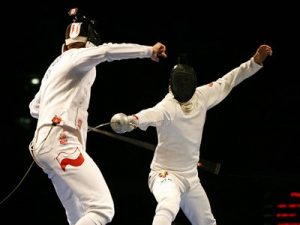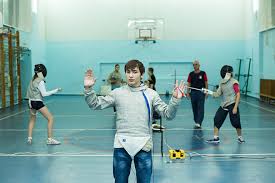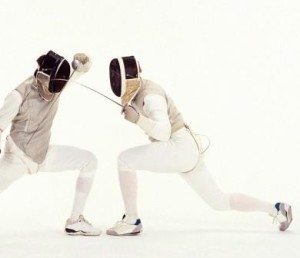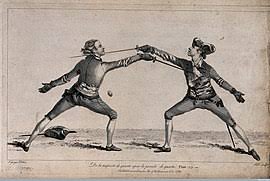techniques taken
Differences between Sports and Stage Fencing
 The main difference between sports and stage fencing is that in sports fencing, the result is a victory in a duel, and in stage fencing, an assessment of the audience. This defines the different tasks that stage and sports fencing is designed to solve.
The main difference between sports and stage fencing is that in sports fencing, the result is a victory in a duel, and in stage fencing, an assessment of the audience. This defines the different tasks that stage and sports fencing is designed to solve.
The task of stage fencing is to teach future actors to conduct a believable, aesthetically verified, expressive duel, filling it with sculptural positions and scenically spectacular movements. The task of sports fencing is the formation of the athlete’s technical and tactical skills, general physical and psychological qualities that allow him to prevail over rivals in fights. Continue reading
Fencing will make your child agile, brave and strong.
 Fencing is one of the most difficult and highly coordinated sports. Sports fencing is a champion among all sports in terms of the requirements for reactive activity of skeletal muscles and the nervous system. Simply put, there is no sport that would require more reaction and greater speed of movement, recruited simultaneously. If the sprinter develops a constant speed while running for 100 meters, with which it is difficult to compare something, then the fencer develops a speed of movement that is 15–20 times higher than the speed of movement in the space of the sprinter!
Fencing is one of the most difficult and highly coordinated sports. Sports fencing is a champion among all sports in terms of the requirements for reactive activity of skeletal muscles and the nervous system. Simply put, there is no sport that would require more reaction and greater speed of movement, recruited simultaneously. If the sprinter develops a constant speed while running for 100 meters, with which it is difficult to compare something, then the fencer develops a speed of movement that is 15–20 times higher than the speed of movement in the space of the sprinter!
Why is fencing useful? Continue reading
Swords naked, nobles: 7 reasons to engage in fencing in 2019
 Frenchwoman Jeanne Kalman began fencing at the age of 85 and as a result she lived for 122 years and 164 days! While you are considering whether to follow her example, we have selected several more reasons why fencing is so popular all over the world (136 countries are members of the International Fencing Federation).
Frenchwoman Jeanne Kalman began fencing at the age of 85 and as a result she lived for 122 years and 164 days! While you are considering whether to follow her example, we have selected several more reasons why fencing is so popular all over the world (136 countries are members of the International Fencing Federation).
7 reasons to do fencing
1. Fencing improves coordination
Sitting for weeks in the office, you are doomed to become more and more clumsy: an awkward elbow movement – and now a pile of papers is flying off the table … Balancing on a 14-meter metal path only one and a half meters wide while practicing fencing (studying various fencing positions), you quickly wean the body from such embarrassments. Continue reading




